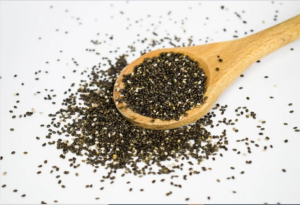Foods that Help Beat Stress
An extremely direct observation, but one that retains a deep and strong connotation every time someone encounters a problem in life, whether at work, at home, or with family members. Stress sufferers will begin to notice changes in their body and report feelings of muscle stress, headaches, irritability, and lack of tiredness and attention, to record some of them. Many people can become unhealthy comfort food when they feel anxious, nervous, or depressed.
Leading to eating habits that can promote significant effects such as blood sugar imbalance, weight loss, and weakening of the immune system. These unhealthy eating habits include frequent consumption of fast food and foods high in sugar and fat, skipping meals, and consuming large amounts of caffeine. So take a minute to think about what your body might be going through upstairs. The fitness and nutrition to beat stress is one option you have. There are areas of study where different specific nutrients have been studied and their effects on emotional health, stress, and general wellbeing, and these include :
Consume Enough Carbohydrates

Carbohydrates within their digested type (glucose) are the body’s main energy source, especially for our thoughts. If you have a good carbohydrates source in your diet, make sure you have enough sugar in your blood. This will certainly affect our ability to concentrate and concentrate. When there is not enough sugar in our bloodstream, we begin to feel weak, exhausted, and not concentrated. Thus, our body has been reduced to gasoline for our thoughts, which affects our mood. Another idea that relates carbohydrates to mood is the desire for carbohydrates and to take them to relax. Some researchers have suggested that carbohydrates increase dopamine “pleasure hormone” in the mind, which can be a rather “relaxing” chemical.
Consume Foods Rich in Proteins

Serotonin is very important for mood control, cognitive functions, muscle contraction, sleep, and appetite regulation. Can this possible theory explain sweets’ use to calm foods such as cake and chocolate when people feel depressed? There was not enough scientific evidence in education to support this on a physical basis. Protein Insufficient or limited amounts of protein in food can adversely affect serotonin levels and cause feelings of irritability, mood swings, and depression.
Consume Magnesium
Magnesium is an essential nutrient our body needs because it is involved in several chemical reactions in our body. If you suffer from a magnesium deficiency, the chances of developing better muscle tone, irregular heartbeat, chronic fatigue, and periodic sleep increase, causing feelings of stress, anxiety, and depression. Green leafy vegetables, nuts, seeds, and whole grains are excellent calcium sources, which you are likely to eat every day.
Consume Foods Rich in Iron
Symptoms include extreme and constant tiredness and exhaustion, which can lead to a bad mood and irritability. Foods rich in iron are legumes (beans, lentils), poultry, eggs, beans, walnuts, spinach, and salad, which help with iron intake.
Consume Foods Rich in Omega-3 Fatty Acids

Omega-3 fatty acids are found in both plant foods and seafood, but the marine omega-3 fatty acids provide the strongest evidence of health benefits. Several studies are underway to investigate its effect on emotional health, particularly depression, especially EPA, where some studies have predicted it to be the typical antidepressant. Omega-3 fatty acids are believed to help build mobile connections in the brain. The more omega-3 fatty acids you have in your blood, the more likely you will produce dopamine, which increases your hormones and makes the sedative chemical more reactive. Remember that admitting you are worried and seeking help is the first step to making progress.



